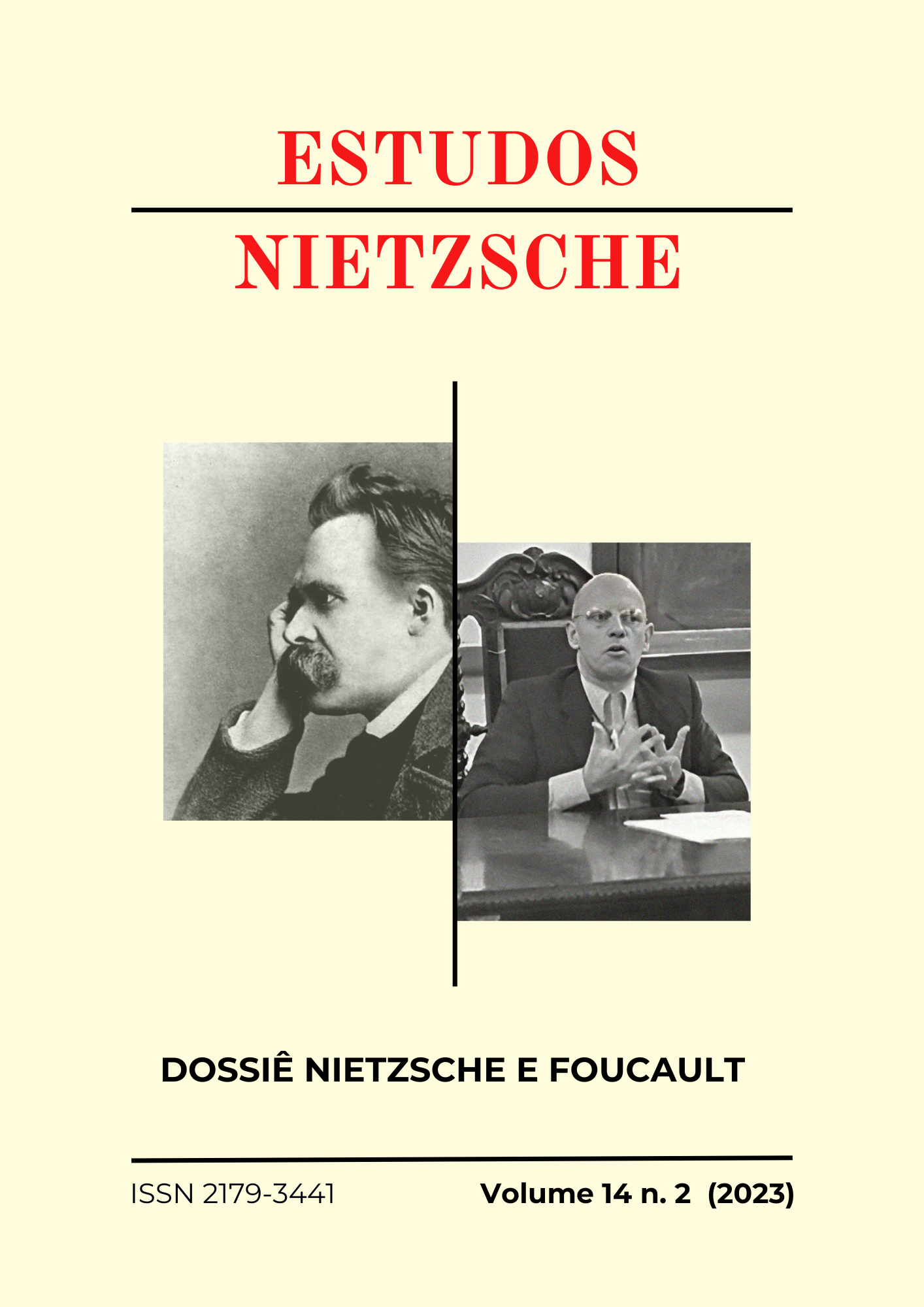O terror que edifica
O Nietzsche de Leo Strauss
DOI:
https://doi.org/10.47456/en.v14i2.42442Palavras-chave:
Nietzsche, Leo Strauss, Crise, Superação do niilismoResumo
Leo Strauss foi um profundo leitor de Nietzsche. Impactado pelo filósofo de Zaratustra desde a juventude, Strauss desenvolveu uma interpretação complexa e original sobre o papel fundamental de Nietzsche na história do pensamento. Neste artigo, pretendo mostrar que a interpretação do professor Strauss possui nuances e disposições distintas, o que evolve tanto uma paixão pessoal quanto uma posterior crítica e apropriação. Concluo que Strauss vê em Nietzsche aquele que apontou um caminho possível de superação do niilismo, por meio de uma crítica radical aos aspectos constitutivos da modernidade, ofereceu a saída para a crise de sentido que afeta a humanidade contemporânea.
Referências
ANSELLPEARSON, K. An Introduction to Nietzsche as Political Thinker. Cambridge: University Press, 1994.
LAMPERT, L. Leo Strauss and Nietzsche. Chicago: Chicago University Press, 1996.
MINER, R. Leo Strauss’s Adherence to Nietzsche’s “Atheism From Intellectual Probity”. Perspectives on Political Science, 2012, pp. 155-164.
MCALLISTER, Ted V. Revolta contra a modernidade: Leo Strauss, Eric Voegelin e a busca de uma ordem pós-liberal. Trad. de Túlio Sousa Borges de Oliveira. São Paulo: É Realizações, 2017.
NIETZSCHE, F. Além do bem e do mal: prelúdio de uma filosofia do futuro. Trad. de Mário Ferreira dos Santos. Petrópolis: Vozes, 2013.
_____. Assim falou Zaratustra. Trad. de Paulo César de Souza. São Paulo: Companhia das Letras, 2014.
_____. Segunda Consideração Intempestiva: Da utilidade e desvantagem da História para a vida. Trad. de Marco Antônio Casanova. Rio de Janeiro: Relume Dumará, 2003.
SHARPE, Matthew & TOWNSEND, Daniel. Introduction: the Strauss Controversy, Leo Strauss, and Nietzsche. WOODWARD, Ashley (org). Interpreting Nietzsche: reception and influence. New York: USA Continunn 2011, pp. 131 148.
STRAUSS, L. An Introduction to Political Philosophy: Ten essays by Leo Strauss. Detroit: Wayne State University Press, 1989a.
_____. Note on the Plan of Nietzsche’s Beyond Good and Evil. In: _____. Studies in Platonic Political Philosophy. With an Introduction by Thomas Pangle. Chicago: The University of Chicago Press, 1983, pp. 174-191.
_____. German Nihilism. Interpretation, vol. 26, n° 3, 1999.
_____. Leo Strauss on Political Philosophy / Responding to the Challenge of Positivism and Historicism. Editado por Catherine H. Zuckert. Chicago: The University of Chicago Press, 2018.
_____. Natural Right and History. Chicago: The University of Chicago Press, 1965.
_____. Nietzsche I: Seminar on Historicism. 1956 [curso não publicado].
_____. Nietzsche III, Seminar on Nietzsche: Zarathustra, Genealogy of Morals, Beyond the Good & Evil. 1967 [curso não publicado].
_____. Seminar on Nietzsche’ Also Sprach Zarathustra. 1959 [curso não publicado].
_____. The City and Man. Chicago: The University of Chicago Press, 1992.
_____. The Living Issues of German Post-War Philosophy (1940). In: MEIER, H. Strauss and the Theologico-Political Problem. Cambridge: Cambridge University Press, 2006.
_____. What is Political Philosophy? And Other Studies. Chicago: The University of Chicago Press, 1988.
_____. Leo Strauss on Nietzsche’s Thus spoke Zarathustra. Editado por Richard L. Velkley. Chicago: The University of Chicago Press, 2017.
_____. Rebirth of Classical Political Rationalism. Organizado por L. Pangle. Chicago: The University of Chicago Press, 1989b.
STRAUSS, L. & LÖWITH, K. Correspondence. Independent Journal of Philosophy. Vol. 5/6, 1988. pp. 182-183.
TANGUAY, D. Strauss disciple de Nietzsche? A propos d'une hypothèse récente sur le sens « caché » de l'œuvre de Leo Strauss. Les Études philosophiques, nº 1, 2000, pp. 105-132.
Downloads
Publicado
Edição
Seção
Licença
Copyright (c) 2024 Elvis Mendes

Este trabalho está licenciado sob uma licença Creative Commons Attribution 4.0 International License.
Ao submeter o artigo, resenha ou tradução para a Estudos Nietzsche, o autor cede à revista o direito à primeira publicação do texto, mantendo, contudo, o direito de reutilizar o material publicado, por exemplo, em futuras coletâneas de sua obra.






